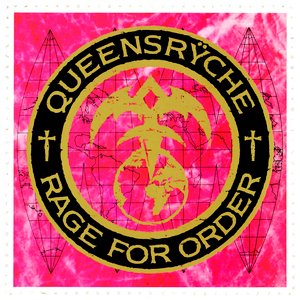Published on Dec 31, 1998
So far in this New Year’s Eve monstrosity, we’ve taken a look at
a lot of albums that were the last efforts before a particular band
broke into the big time in a big way. Let’s take a look at yet
another such case: Queensryche.
Led by operatically-trained vocalist Geoff Tate, Queensryche
proved themselves to be a more melodic type of hard rock/heavy
metal – a band that was concerned with the overall sound as well as
the energy level. Their 1986 effort
Rage For Order showed considerable growth since their debut,
but more growth, especially in the songwriting department, was
needed. (Of course, it goes without saying that their next release,
Operation: MindCrime, would prove the band learned all their
lessons.)
Musically, Queensryche constantly proved their talents. The
two-guitar attack of Chris DeGarmo and Michael Wilton was as solid
a rhythm section as one could ask for – taking nothing away from
bassist Eddie Jackson or drummer Scott Rockenfield. Even on this,
their third effort together, Queensryche proved themselves to be a
very cohesive unit.
And the album starts out in a strong enough vein with “Walk In
The Shadows”, as powerful a lead single as one could want. You
could even hear whispers of what was to come in songs like “I Dream
In Infra Red,” a song which I thought sounded better in an acoustic
version (a b-side of one of
Empire‘s singles).
But not everything that was crafted for
Rage For Order was of the highest caliber. “Surgical Strike”
was an attempt at a faster-tempoed number that went wrong from the
start; it is the closest to cornball that Queensryche sounds.
“Gonna Get Close To You” is a challenging attempt to expand the
boundaries of what hard rock was in 1986, but it just falls short
of the mark. And many other tracks, like “I Will Remember” and “The
Killing Words,” just are average fare.
This is not to say that the majority of
Rage For Order is forgettable. Tracks like “London” and
“Screaming In Digital” show the promise that this band had at the
time, and restores one’s faith in a form of metal that challenges
the listener to be on their toes instead of just listening
passively.
And, perhaps, this was Queensryche’s Achilles’s heel at the
time; they were very much a cerebral band in their style of
songwriting. True, later efforts challenged the listner to think,
but not as much as
Rage For Order did. Some bands, like Rush, can get away with
this. For some reason, it doesn’t work as well with
Queensryche.
Rage For Order was still one of the albums that helped
define the shape that heavy metal took in the mid- to late-’80s,
and is worth giving a spin occasionally in the Pierce Archives. But
if you pick this one up expecting to hear the same magic as
Empire, you may be disappointed.
